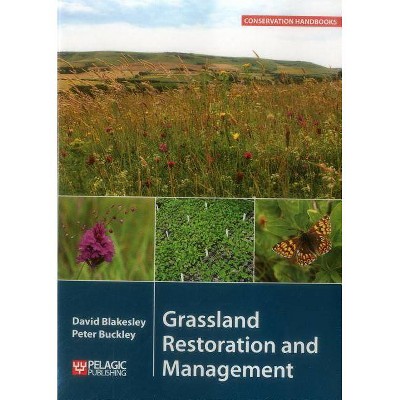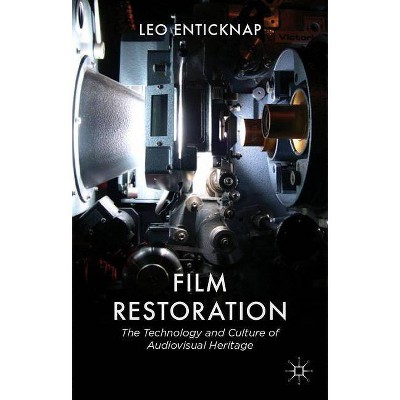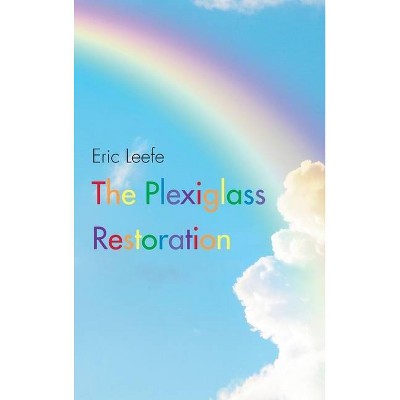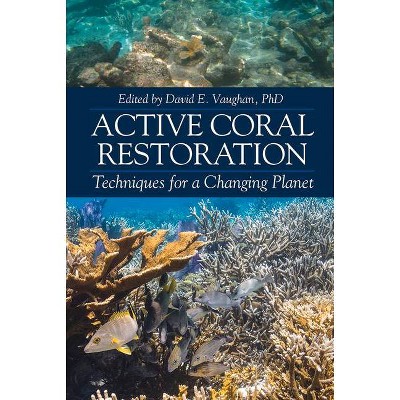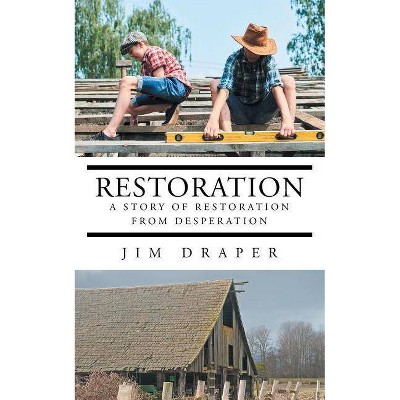River Restoration - (Advancing River Restoration and Management) by Bertrand Morandi & Marylise Cottet & Piégay (Hardcover)
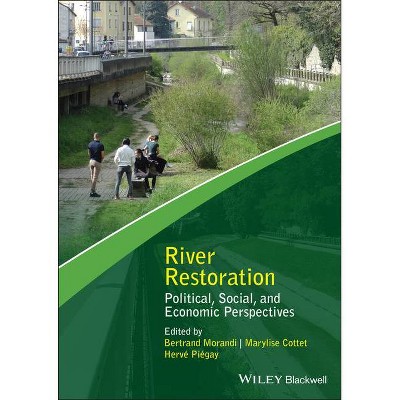
Similar Products
Products of same category from the store
AllProduct info
<p/><br></br><p><b> About the Book </b></p></br></br>"River restoration has expanded exponentially in the last three decades, with increased investment by government agencies, private developers, and NGOs. The available literature -- both scholarly works and government guidance manuals -- has grown proportionately, but has been almost entirely about ecological, hydrological, and geomorphological aspects of restoration. Yet the primary issues faced by many restoration programs have more to do with legal, economic, and institutional barriers and public perception and acceptance, than with physical and ecological constraints (though these can be formidable as well). Diverse issues such as the installation of habitat structures and replanting along a small creek by a local group, or a major program to restore complex habitat, a more natural flow regime, and sediment supply to a river below a dam, require an understanding of the social dimensions of river restoration projects. For anyone funding, permitting, planning, designing, or building river restoration projects, a concise, up-to-date, clearly organized treatment of the critical socio-economic issues relevant to river restoration will be a very useful asset. Most people involved in restoration projects (ecologists, engineers, landscape architects, hydrologists) lack a strong background in the social sciences. Increasingly however, these professionals understand that they must consider social dimensions. This book will fill a critical gap in their libraries summarizing how social approaches can contribute to river restoration projects and policies. The aim of this book is to present and synthesize understanding from recent advances in social sciences related to river restoration. It will cover not only supposedly "intangible" social phenomena -- such as ethics, culture and justice -- but also very tangible practical aspects -- including policy, governance, project management, decision making and stakeholder interactions -- to give a complete picture of the sometimes complex interaction of issues in river restoration."--<p/><br></br><p><b> Book Synopsis </b></p></br></br><b>River Restoration</b> <p>River restoration initiatives are now widespread across the world. The research efforts undertaken to support them are increasingly interdisciplinary, focusing on ecological, chemical, physical as well as societal issues. <i>River Restoration: Political, Social, and Economic Perspectives</i> provides a comprehensive overview of research in the field of river restoration in humanities and the social sciences. It illustrates how, in the last thirty years or so, such approaches have evolved and strengthened within the restoration sciences. <p>The scientific community working in this domain has structured itself, often regionally and circumstantially, to critically assess and improve restoration policies and practices. As a research field, river restoration tackles three thematic axes: <ul><li>Human-river interactions - especially perceptions and practices of rivers, and how these interactions can be changed by restoration projects</li> <li>Political processes, with a particular interest in governance and decision-making, and a specific emphasis on the question of public participation in restoration projects</li> <li>Evaluation of the social and economic benefits of river restoration</li></ul> <p><i>River Restoration: Political, Social, and Economic Perspectives</i> encompasses these three topics, and more, to provide the reader with the most up-to-date and holistic view of this constantly evolving area. The book will be of particular interest to human and social scientists, biophysical scientists (hydrologists, geomorphologists, ecologists), environmental scientists, public policy makers, design or planning officers, and anyone working in the field of river restoration.<p/><br></br><p><b> From the Back Cover </b></p></br></br><p><b>River Restoration</b></p> <p>River restoration initiatives are now widespread across the world. The research efforts undertaken to support them are increasingly interdisciplinary, focusing on ecological, chemical, physical as well as societal issues. <i>River Restoration: Political, Social, and Economic Perspectives</i> provides a comprehensive overview of research in the field of river restoration in humanities and the social sciences. It illustrates how, in the last thirty years or so, such approaches have evolved and strengthened within the restoration sciences. <p>The scientific community working in this domain has structured itself, often regionally and circumstantially, to critically assess and improve restoration policies and practices. As a research field, river restoration tackles three thematic axes: <ul><li>Human-river interactions - especially perceptions and practices of rivers, and how these interactions can be changed by restoration projects</li> <li>Political processes, with a particular interest in governance and decision-making, and a specific emphasis on the question of public participation in restoration projects</li> <li>Evaluation of the social and economic benefits of river restoration</li></ul> <p><i>River Restoration: Political, Social, and Economic Perspectives </i>encompasses these three topics, and more, to provide the reader with the most up-to-date and holistic view of this constantly evolving area. The book will be of particular interest to human and social scientists, biophysical scientists (hydrologists, geomorphologists, ecologists), environmental scientists, public policy makers, design or planning officers, and anyone working in the field of river restoration.<p/><br></br><p><b> About the Author </b></p></br></br><p><b>About the Editors</b></p> <p><b>Bertrand Morandi, Marylise Cottet</b> and <b>Hervé Piégay</b> are geographers with an interdisciplinary expertise in the field of river research and restoration. They are all based at the Université de Lyon, France. They are experienced in using integrated approaches to deepen knowledge of river socio-ecosystems. They lead interdisciplinary programs which consider both ecological and social issues of river restoration and aim at providing knowledge and methods to aid public decision making. In this context, they regularly collaborate with water managers and stakeholders. They are also involved in Rhône Basin LTER network and Rhône Valley Human-Environments Observatory (Labex DRIIHM) and actively contribute to an interdisciplinary doctoral School in Watershed Sciences (EUR H2O'Lyon).
Price History
Price Archive shows prices from various stores, lets you see history and find the cheapest. There is no actual sale on the website. For all support, inquiry and suggestion messagescommunication@pricearchive.us
